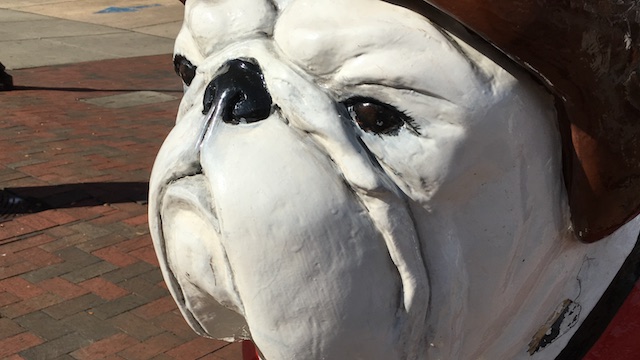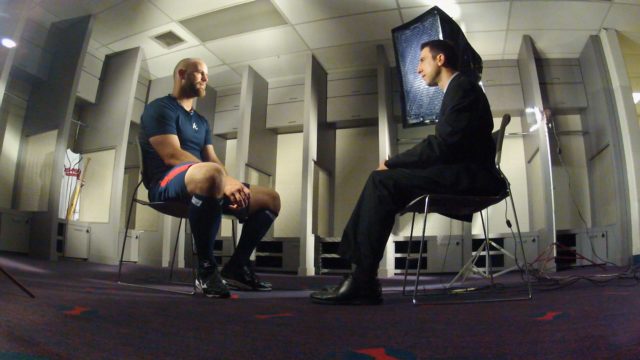The following was originally posted in 2013, when Evan Gattis was a rookie with the Atlanta Braves. This week, with the Houston Astros, he became a World Series champion.
Snooze.
I awoke to the sound of muffled radio static on the hotel room’s alarm clock. I had not bothered to find a station before I went to sleep the previous night; I was exhausted, and I doubted I would miss much by scanning the AM dial for the finest station in Abilene, Texas. I also knew I would not be listening for very long when I awoke.
Instead, I did the first thing I could think of: reach over and hit the button on top.
Snooze.
I didn’t intend to go back to sleep. I couldn’t. I was up for a reason: to drive ten hours, in one day, to interview two people, both of whom were integral to the life of Atlanta Braves catcher Evan Gattis. A month earlier, Gattis made the Braves’ Opening Day roster as a 26-year-old rookie. Two weeks after that, he was named National League Rookie of the Month.
But that was not what sent me to Texas. I had arrived in America’s second-largest state to shine the spotlight on Gattis’ other claim to fame, the story that had captivated Braves fans in Atlanta and baseball fans across the country. After completing high school and committing to Texas A&M as a highly-touted prospect, Gattis left the game and did not return for half a decade. In the meantime, he traveled the state and the country, working odd jobs at golf courses, ski resorts, and even Yellowstone National Park. He followed a spiritual advisor to New Mexico, and he lived like a nomad, on a search for purpose and identity. Gattis went on a journey, to be sure, and came out of it a Major League baseball player.
How fitting, then, that I would need to take my own journey to properly tell his story.
I got out of bed in that Abilene hotel room and took a shower. Then I heard that muffled AM static. I walked over and looked at the radio clock, flashing a time I generally only saw in the afternoon.
4:44.
I wanted to hit Snooze again. But not this time. It was time to hit the road.
(more…)








